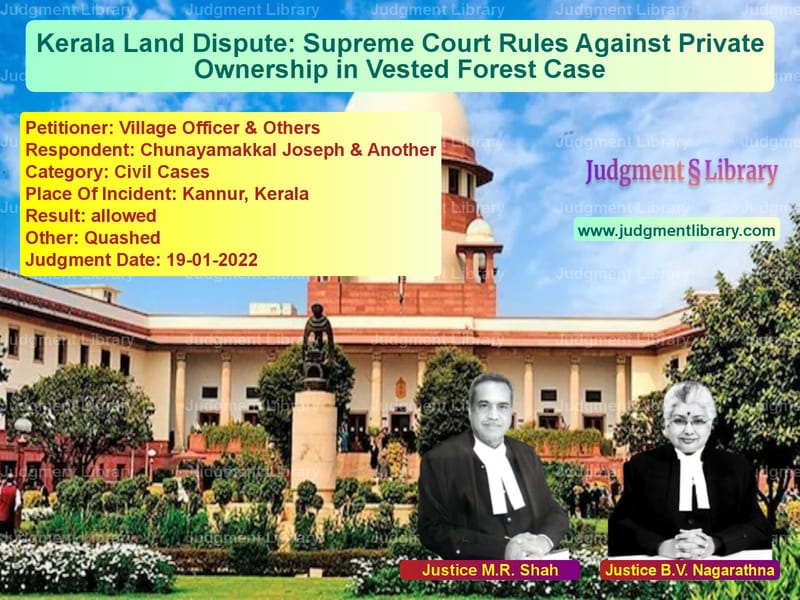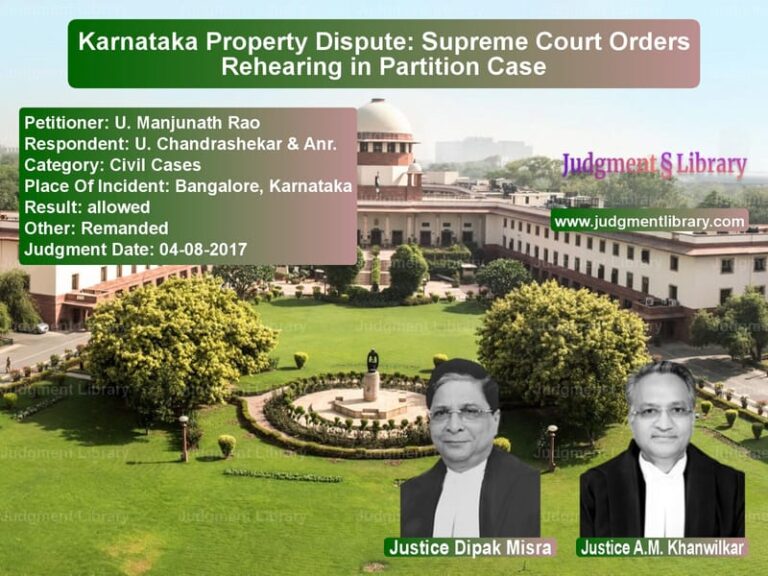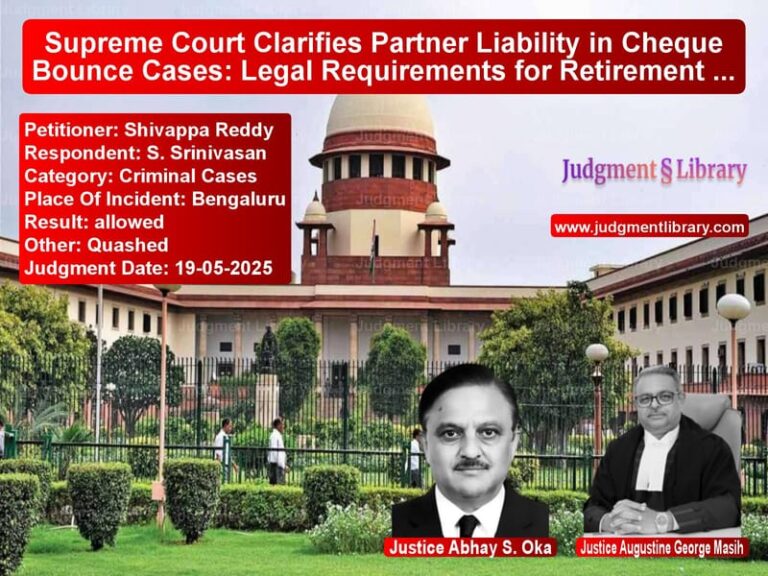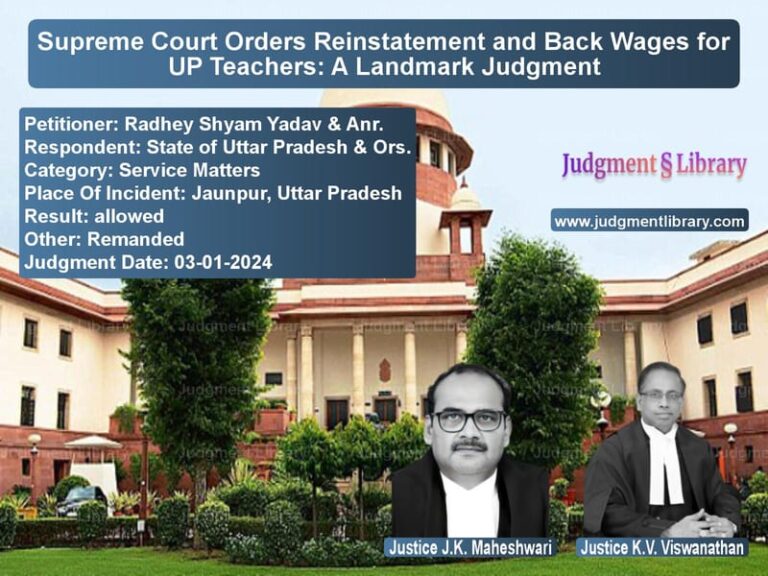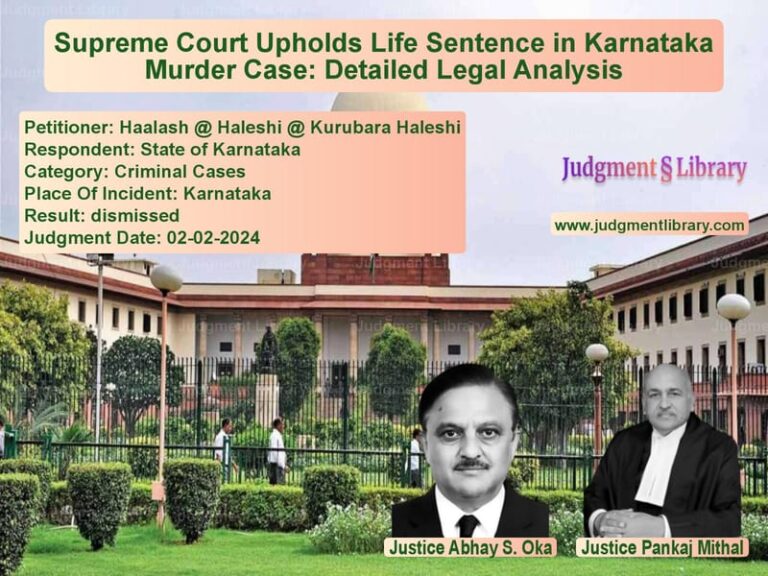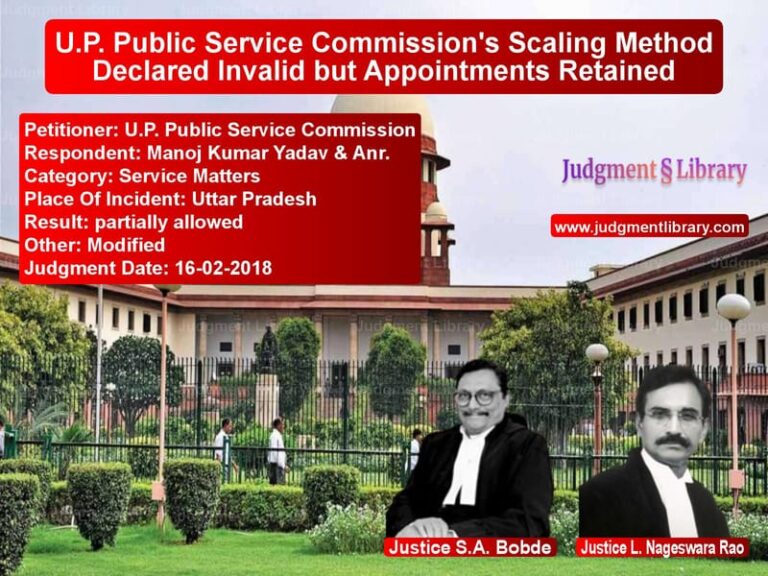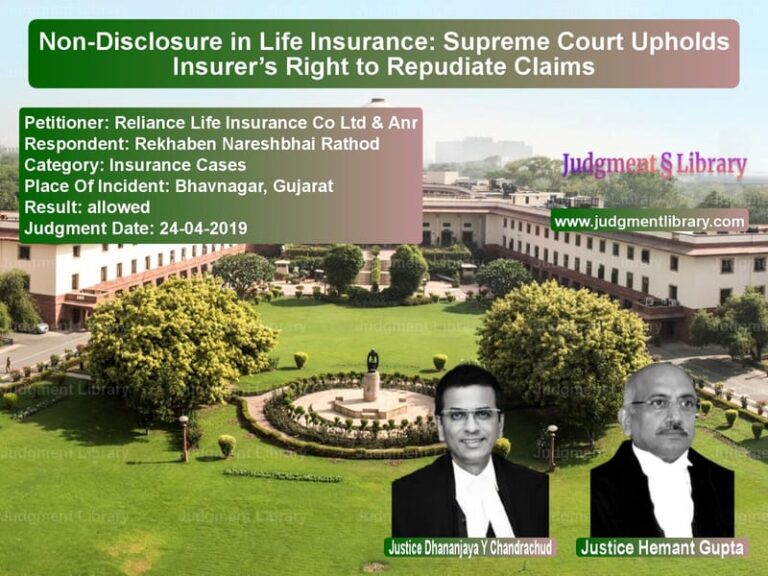Kerala Land Dispute: Supreme Court Rules Against Private Ownership in Vested Forest Case
The Supreme Court of India recently ruled on a long-standing land dispute in Kerala, declaring that private individuals cannot claim ownership of land that has been vested in the government as forest land. The case, Village Officer & Others vs. Chunayamakkal Joseph & Another, involved a dispute over 12 acres of land in Naduvil village, Kannur, which had been declared a vested forest under the Kerala Private Forests (Vesting and Assignment) Act, 1971.
Background of the Case
The dispute arose when Chunayamakkal Joseph and others claimed ownership over the land and sought permission to pay basic land tax. The Kerala High Court ruled in their favor, directing the revenue authorities to accept the tax. The Village Officer of Kannur and other government officials challenged this order, arguing that the land had already been classified as forest land and was not eligible for private ownership.
Legal Issues
- Does a private individual have the right to claim ownership of land classified as vested forest?
- Can a High Court order the government to accept tax from individuals who do not have legal ownership?
- Was the cancellation of the purchase certificates by the Land Tribunal justified?
Arguments by the Appellants (Government Authorities)
The government, represented by Advocate K.M. Nataraj, contended that:
- The land in question was declared a vested forest as per a government notification issued in 1977.
- The purchase certificates issued to the respondents were canceled by the Land Tribunal in 2002, thereby nullifying their claim.
- The Kerala Private Forests Act mandates that all private forests stand transferred to the government.
- The High Court order allowing tax collection was an attempt to establish private ownership over government land.
Arguments by the Respondents
The respondents, represented by Advocate P. Chidambaram, argued that:
- They had been in possession of the land since 1956 and had paid tax for several years before the dispute arose.
- The purchase certificates were granted to them as per the Kerala Land Reforms Act, recognizing them as cultivating tenants.
- The government had previously admitted in affidavits that they were in possession of the land.
- The dismissal of their case by the Forest Tribunal on technical grounds did not nullify their ownership.
Supreme Court’s Observations
The Supreme Court bench, comprising Justice M.R. Shah and Justice B.V. Nagarathna, ruled against the respondents and held:
“The High Court failed to consider that the respondents’ claim of ownership had already been rejected by the Land Tribunal and that the land was classified as vested forest.”
“By directing the authorities to collect tax from the respondents, the High Court indirectly granted them ownership rights over government land. This is legally unsustainable.”
Key Legal Findings
- Land Ownership Status: The Court reaffirmed that the land in question was vested forest land and could not be privately owned.
- Cancellation of Purchase Certificates: The earlier decision by the Land Tribunal to cancel the respondents’ purchase certificates was upheld.
- Tax Collection Does Not Grant Ownership: The mere payment of tax does not create legal ownership of land.
- Judicial Overreach: The High Court’s direction to accept tax from the respondents was found to be erroneous as it contradicted the government’s classification of the land.
Final Judgment
The Supreme Court ruled:
“The impugned judgments and orders passed by the High Court are set aside. The land in question remains vested forest land, and the respondents have no claim over it.”
The Court directed that no further claims be entertained for ownership rights over the disputed land.
Implications of the Judgment
This ruling has significant implications for land disputes involving vested forests:
- Protection of Government Land: The verdict ensures that forest lands vested with the government cannot be claimed by private individuals.
- Limitations on Tax Payments: The decision clarifies that paying tax on a piece of land does not automatically confer ownership rights.
- Strengthening Forest Laws: The ruling upholds the Kerala Private Forests Act and reinforces the legal framework for forest conservation.
Conclusion
The Supreme Court’s ruling in Village Officer & Others vs. Chunayamakkal Joseph & Another reinforces the principle that vested forest land belongs to the government and cannot be claimed by private individuals. By overturning the High Court’s decision, the judgment ensures the integrity of forest conservation laws and protects government land from unauthorized claims.
Petitioner Name: Village Officer & Others.Respondent Name: Chunayamakkal Joseph & Another.Judgment By: Justice M.R. Shah, Justice B.V. Nagarathna.Place Of Incident: Kannur, Kerala.Judgment Date: 19-01-2022.
Don’t miss out on the full details! Download the complete judgment in PDF format below and gain valuable insights instantly!
Download Judgment: village-officer-&-ot-vs-chunayamakkal-joseph-supreme-court-of-india-judgment-dated-19-01-2022.pdf
Directly Download Judgment: Directly download this Judgment
See all petitions in Property Disputes
See all petitions in Landlord-Tenant Disputes
See all petitions in Specific Performance
See all petitions in Judgment by Mukeshkumar Rasikbhai Shah
See all petitions in Judgment by B.V. Nagarathna
See all petitions in allowed
See all petitions in Quashed
See all petitions in supreme court of India judgments January 2022
See all petitions in 2022 judgments
See all posts in Civil Cases Category
See all allowed petitions in Civil Cases Category
See all Dismissed petitions in Civil Cases Category
See all partially allowed petitions in Civil Cases Category

